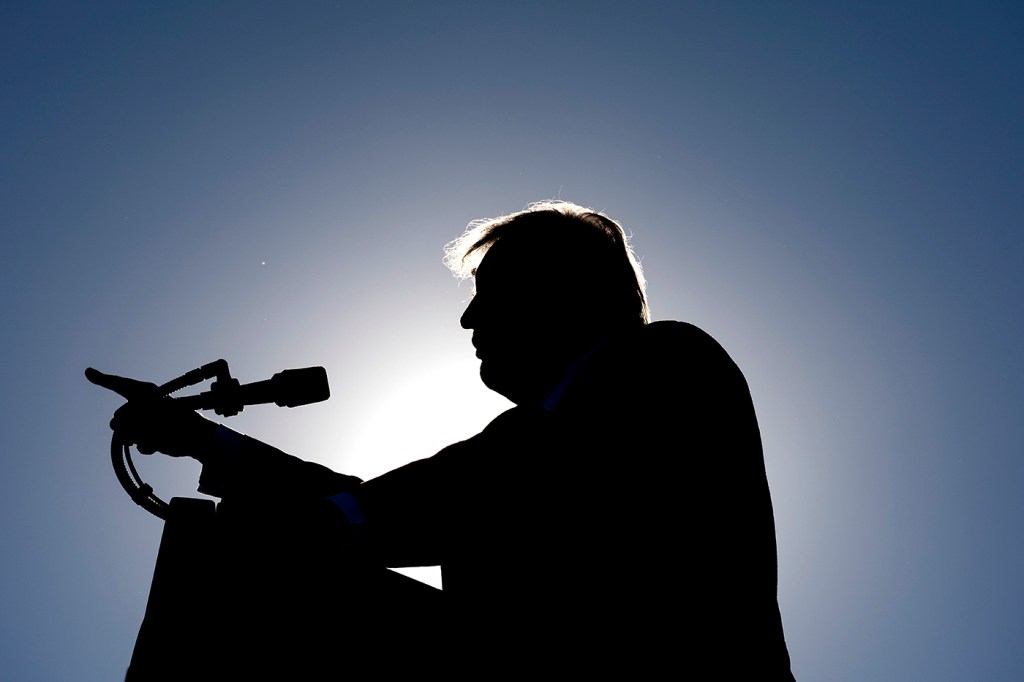Trump’s second impeachment, step by step

Only three presidents have been impeached in U.S. history. Former President Donald Trump is the only one to be impeached a second time—which means he accounts for 50 percent of all presidential impeachments. Trump’s Senate trial begins Tuesday, triggering another historic first: He’s the only former president to be tried by Congress. Pursuing charges against a president no longer in office “could open the door to increased impeachments by both parties,” warns Dan Urman, who teaches a course at Northeastern on constitutional law and the modern U.S. Supreme Court.
This guide walks you through the impeachment process, with commentary from Northeastern faculty experts.

Impeachment is a two-part process: The U.S. House of Representatives introduces and votes on articles of impeachment, then the articles are sent to the Senate for a trial. The current article of impeachment accuses Trump of inciting the Jan. 6 riot at the U.S. Capitol, saying he whipped his supporters into a “frenzy” and was “singularly responsible” for the ensuing chaos. One of Trump’s attorneys has argued that Trump’s speech was protected by the First Amendment: “If this speech is considered incitement for insurrection, then I think any passionate political speaker is at risk.”

The proceedings will trigger a debate about the constitutionality of impeachment proceedings against a former president, says Costas Panagopoulos, chair of Northeastern’s Department of Political Science and an expert on campaigns and elections, voting behavior, and political psychology. “Ultimately, it is likely to be deemed constitutional, but some will argue it is not, and some GOP senators may use this as a basis to vote for acquittal.”

The nine House impeachment managers claim that Trump is not protected by the First Amendment, which they say was never intended to allow a president to “provoke lawless action if he loses at the polls.” Their legal brief states: “If provoking an insurrectionary riot against a Joint Session of Congress after losing an election is not an impeachable offense, it is hard to imagine what would be.”

Senators voted 55 to 45 to proceed with a trial despite a Republican effort to dismiss the charge as unconstitutional. While the vote allows the matter to continue, it strongly suggests that there won’t be a two-thirds majority needed to convict. “Many of those who support holding the trial hope that the hearings reinforce the existing precedent of presidents as presidents and not kings, and that even in a ‘lame duck’ period their actions must adhere to the law,” says Julie Garey, assistant teaching professor of political science.

The trial is scheduled to start on Feb. 9. Through its duration, rules forbid senators from conducting any other business, including consideration of President Biden’s personnel appointments and legislation. “That does not mean that nothing can or will happen,” Garey points out. “I expect the bounds of executive authority to be challenged by the Biden administration by way of non-legislative COVID-19 relief, and there’s a lot that can be done here without Congress.”

Supreme Court Chief Justice John Roberts would have presided over the trial, but stood down since the Constitution only requires his presence in cases involving a sitting president. Roberts “cares deeply about the court’s perception as a neutral and non-political body,” says Urman. “While much of the court’s work is inherently political, Roberts saw the constitutional language as an escape hatch.” In his place will be Vermont Sen. Patrick Leahy, a Democrat. Leahy “is a veteran politician who is sure to grasp the significance of his historical position and act with integrity and respect for the impartiality of the process,” says Panagopoulos.

While unusual, there is precedent for impeaching former officials. It happened in 1876 when President Ulysses S. Grant’s secretary of war, William Belknap, was convicted of using his office for personal gain. He was impeached, but then resigned from office. The Senate went ahead and tried him, and he was later acquitted. “The reason why that matters today is that the Senate could vote to convict and also to bar Trump from future office, which might mean barring him from running for the presidency again,” explains Jeremy Paul, the former dean of the Northeastern School of Law who now teaches constitutional law, property, and jurisprudence.

House impeachment managers urged senators to bar Trump from ever serving again in elected office. “This is not a case where elections alone are a sufficient safeguard against future abuse,” they wrote. Lack of a conviction may make it possible for Trump to make another run for the White House, Panagopoulos says, but “it may still not be politically viable.”
Adds Garey: “Trump faces other legal battles, and in 2024 he’ll turn 78. It’s not impossible he could run, but these will be significant variables that determine his status.”

There are concerns not only about the ripple effect a drawn-out trial could have on Biden’s agenda, but on the need for a trial at all if acquittal is almost certain. But Northeastern’s Urman predicts impeachment should be relatively quick, and the video evidence that will be presented is emotionally compelling. “It could leave a lasting impact on the public, if not the Republican Senators,” he predicts.

The greater danger, says Panagopoulos, is that the trial proceedings and outcome could damage the rapport between Democrats and Republicans in Congress, and further jeopardize Biden’s ability to achieve unity and bipartisanship on Capitol Hill. “The signal the impeachment trial will send—that preserving and protecting the integrity of American democracy is the nation’s top priority—is crucial,” he says.






